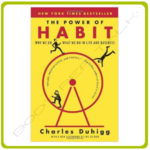 Ah, the scale. As a woman seeking to lose weight, it can be your best friend or your worst enemy.
Ah, the scale. As a woman seeking to lose weight, it can be your best friend or your worst enemy.
Sadly, though, a lot of women get addicted to that number on the scale. They see it not just as measure of their weight but as a measure of their success, their value, and their worth.
When that number doesn’t say what they want, they know without a doubt they’re going to have a bad day.
Here are a few signs that you have a scale addiction:


